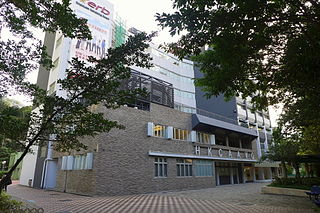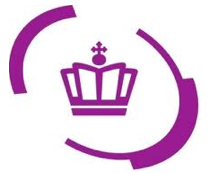
Outcome-based education or outcomes-based education (OBE) is an educational theory that bases each part of an educational system around goals (outcomes). By the end of the educational experience, each student should have achieved the goal. There is no single specified style of teaching or assessment in OBE; instead, classes, opportunities, and assessments should all help students achieve the specified outcomes. The role of the faculty adapts into instructor, trainer, facilitator, and/or mentor based on the outcomes targeted.

The New Zealand Qualifications Authority is the New Zealand government Crown entity tasked with administering educational assessment and qualifications. It was established by the Education Act 1989.
A national qualifications framework (NQF) is a formal system describing qualifications. 47 countries participating in the Bologna Process are committed to producing a national qualifications framework. Other countries not part of this process also have national qualifications frameworks.

The Hong Kong Council for Accreditation of Academic and Vocational Qualifications (HKCAAVQ), (HKCAA) is a statutory body established under the HKCAAVQ Ordinance which came into effect on 1 October 2007.

The Technical Education and Skills Development Authority serves as the Philippines' Technical Vocational Education and Training (TVET) authority. As a government agency, TESDA is tasked to both manage and supervise the Philippines' Technical Education and Skills Development Authority(TESDA). Its goals are to develop the Filipino workforce with "world-class competence and positive work values" and to provide quality technical-educational and skills development through its direction, policies, and programs.

The London School of Business and Finance is a private business school in the United Kingdom, owned by the for-profit education corporate group Global University Systems. It was founded in 2003 by the entrepreneur Aaron Etingen. By 2015 it had become one of England's largest private colleges.

The University of Western Macedonia is a multi-campus university in Western Macedonia region of Greece. It was founded in Kozani in 2003. In 2019, the University of Western Macedonia was merged with the Technological Education Institute of Western Macedonia.
The Ministry of Education and Vocational Training was a government body responsible for providing education in Tanzania. The head offices were located in Dar es Salaam. Under President John Magufuli's first cabinet, the ministry was amalgamated with other functions to form the new Ministry of Education, Science, Technology and Vocational Training.

The Ministry of Education (MOE) is a multiportfolio government ministry of Ghana, responsible for the governance and management of Ghana's education. It is responsible for the national education curriculum, primarily instituted by Ghana Education Service, which is part of the Ministry.

The Commission for Academic Accreditation (CAA) is the national quality assurance and regulatory agency responsible for evaluation and accreditation of higher educational institutions and universities in the United Arab Emirates. Established in 2000, it comes under the country's Ministry of Education.
The Arab Network for Quality Assurance in Higher Education (ANQAHE) was established in 2007 as a nonprofit nongovernmental organization.
The Oman Authority for Academic Accreditation and Quality Assurance of Education (OAAAQA), formerly the Oman Academic Accreditation Authority (OAAA) is charged with assisting in the development of the higher education sector in Oman through institutional quality audits and institutional and program accreditation processes. Also, in collaboration with the Ministry of Higher Education, it has responsibilities for establishing academic standards, and providing training and networking opportunities.
Higher education accreditation is a type of quality assurance process under which services and operations of post-secondary educational institutions or programs are evaluated to determine if applicable standards are met. If standards are met, accredited status is granted by the agency.

The Danish Accreditation Institution was established by Danish law as an independent institution in 2007. The institution consists of two entities; the Accreditation Council, which serves as the decision-making authority, and Accreditation Institution, which serves as the accreditation operator. The Council makes decisions on the accreditation of all higher education study programmes in Denmark, both new and existing.
The Tertiary Education Quality and Standards Agency (TEQSA) is Australia's independent national quality assurance and regulatory agency for higher education.
The Finnish Education Evaluation Centre (FINEEC) is an independent government agency that evaluates education in Finland and the work of Finnish education providers from early childhood education to higher education. It also produces information for education policy decision-making and the development of education. FINEEC carries out audits of quality systems, evaluations of learning outcomes (in basic education and upper secondary education), and thematic and system evaluations. FINEEC also supports education providers and higher education institutions in matters pertaining to evaluation and quality management and also works to develop the evaluation of education. The tasks and organisation of FINEEC are specified in legislation.

The Ghana Education Service (GES) is a government agency under the Ministry of Education responsible for implementing government policies that ensure that Ghanaians of school-going age irrespective of their ethnicity, gender, disability, religious and political dispositions receive quality formal education. The Ghana Education Service is governed by a fifteen-member council called the GES council.

The Ministry of Education, Culture, Research, and Technology was a government ministry of the Indonesian government responsible for education, cultural, research, and technology affairs. Its formation resulted from the merger of the Ministry of Education and Culture and the Ministry of Research and Technology in April 2021. In October 2024, under the Red White Cabinet, the ministry was split into three ministries: Ministry of Primary and Secondary Education, Ministry of Higher Education, Science and Technology, and Ministry of Cultural Affairs.











